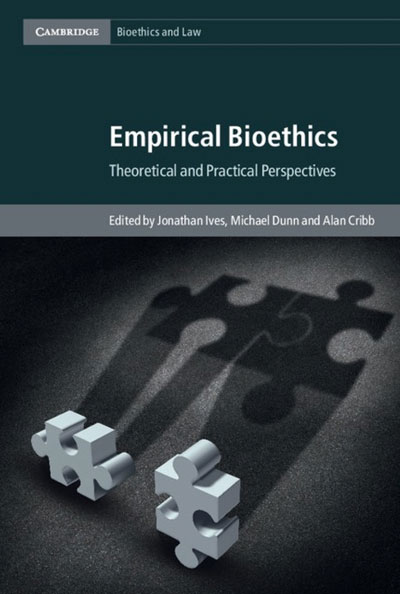2nd – 5th July 2019

The Centre in Ethics for Medicine (CEM), University of Bristol Medical School, run a two-day training course in empirical bioethics as an introduction for students and professionals who want to learn about integrating empirical and theoretical bioethics research. The course is held annually at the University of Bristol (UoB) and it is organised by Dr. Jonathan Ives, deputy director of the CEM, and involves other staff members, and occasional guest lecturers, with experience in the field of empirical bioethics. The course has an interdisciplinary character and takes a practical approach to supporting participants to think through their methodological concerns about research in bioethics, and at the same time provide them with germane insights into key theoretical frameworks.
On 2nd – 5th July 2019 a special edition of this training course was held at the Medical School of the Universidad Católica de Santa María (UCSM) in the city of Arequipa, Perú. Arequipa is a vibrant city located in the second and most important region in Perú, named the “White City” for the colour of its traditional colonial buildings, made of a volcanic stone, which adds to its uniqueness. There are four Universities in the City, which presents an opportunity to gather many national and international students and academic staff, which is richly diverse. A delegation of bioethicists attended from Chile, comprising Dr. Ines Donoso Flores, OHiggins University, Dr. Valentina Fajreldin Chuaqui, Dr. María Angélica Torres Quintana and Dr. Karin Lagos Bosman, University of Chile. This diversity facilitated a stimulating training course, with participants sharing experience and engaging in an enriching exchange of views and opinions about research in bioethics.
The course was organised and funded by the Office of the Vice-Chancellor for Research and the Presidency of Research Ethics Committee of the UCSM. The CEM, in collaboration with the Instituto de Ética Clínica Francisco Vallés (IECFV), Madrid, designed and directed a special edition of the Empirical Bioethics – Two Day Training course. Program sessions were held by Dr. Jonathan Ives, supported by Dr. Emanuele Valenti and Prof. Águeda Muñoz del Carpio Toia.
The course introduced empirical bioethics, its definition and birth (in the European context), and presented an interesting comparison between Europe and contemporary South American bioethics. The development of bioethics in South American countries started under the influence of Northern America (Mainetti, 2007), and the legal frameworks and the first institutions providing assessment for research ethics and health care ethics consultation was strongly influenced by the principles of American bioethics (Lolas, 2014) (promoted by the training programs of the Fogarty International Center, funded by the National Institute of Health, US). During the 1990’s, through the support of the Pan American Health Organization and the engagement of some charismatic bioethicists, structured educational programs in bioethics became available for health care professionals, researchers and progressively for medical students (Lolas, 2010).
The birth of a first generation of bioethicists promoted a critical reflection about the traditional model of American bioethics and cemented the need to rethink approaches to bioethics in the context of South America, and this permitted the influence of more European approached to bioethics. Bioethics has not been institutionalised in South American countries to some extent, with the creation of national commissions for bioethics, extended networks for research ethics and health care ethics committees, training programmes for undergraduate and postgraduate medical students and the existence of several associations such as FELAIBE (Latin American Federation of the Institutions in Bioethics) the equivalent of EACME in Europe, or RedBioetica a network linked with the UNESCO.
Despite this, South American bioethics today is facing an institutional crisis due to the lack of funds and resources available and perhaps this could be an opportunity for a next generation of South American Bioethicists to achieve independence and develop its own identity. Whilst the role of large funders (such as NIH and WHO) and the contribution of charismatic figures have been essential in promoting and laying the foundations for a Latin American Bioethics, these cannot be taken for granted. Changes in the economic outlook caused by the global financial crisis have forced the Governments to drastically cut health care costs, and this has had a great impact on the efficiency of the health care services. This poses new challenges for the South American bioethics today, which needs to both respond to the loss of quality care and related ethical issues arising, but also to forge its own self-sustainable identity in the face of lack of public funds or the support of external international funders to support education in bioethics.
The conclusion of the workshop discussions with academics and medical students was that Empirical Bioethics has the potential to play a role in promoting a sustainable model of bioethics in South America, focussed on practical and fundable research that could contribute to a bioethics that reflects the diversity of a multi-cultural public who can participate in the research process. Let us hope for further collaboration in the future.
Dr Emanuele Valenti

